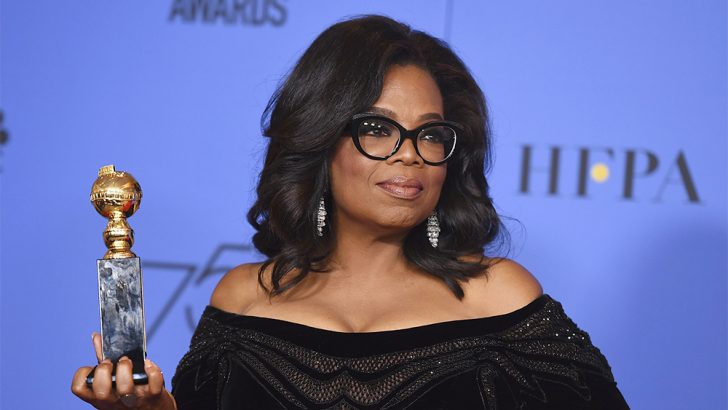The Hollywood actresses – sometimes they prefer to be called ‘female actors’ – made a global impact, surely, by dressing in (very chic) black for the Golden Globe awards. As did Oprah Winefrey’s electrifying speech vowing that the sexual harassment and even routine rape which has been part of Hollywood culture since Joan Crawford was a lass would be abolished forever.
Few commentators, however, have confronted the facts about this situation on a wider scale. Hollywood has always tolerated bad behaviour (Joan Crawford and Lana Turner were not only subjected to the famed ‘casting couch’, but they were forced into horrible abortions thereby), but in a larger social context, much of the culture of sexual harassment arises from the permissive society.
I lived through all this. I participated in it. Before the sex liberation decade of the 1960s, it was not the norm for women to be subjected to casual groping, lewd jokes, or even rough language. Even in Fleet Street, the newspaper industry’s notorious ‘Street of Shame’, I heard men reprimanded for swearing with the phrase: “There are ladies present.”
Yes, there were always cads, bounders and bad eggs known as “blackguards”. As we know from later disclosures, some girls were molested, sometimes by family members, sometimes by strangers.
But it was not everyday practice, and it was certainly not approved of.
Academics
Two British academics, Simon Szreter and Kate Fisher, wrote a detailed social study called Sex Before the Sexual Revolution, published by Cambridge University Press, which examined the way that sexual mores began to change around about 1963. It chronicles a world of different mores before the sexual revolution of “anything goes”.
We thought we were throwing off the constricting oppressions of Victorian hypocrisy, which distinguished between ladylike and ‘common’ or ‘vulgar’ behaviour – or gentlemanly and ‘low’ conduct. And to some extent we were. But we were also throwing off the restraints which quite rightly inhibited grosser activities.
I wish the Hollywood campaigners well, and it would indeed be desirable to see a more moral and ethical framework put in place. According to reports in the New Yorker magazine, the men in Hollywood are going around shaking in their shoes, and using placatory phrases like “look, I’m one of the good guys!”
Yet there are deep contradictions which remain. Show business, like the fashion industry, still encourages women to – as our mothers would have put it – ‘dress like trollops’. The visual exposure of female flesh in unrelenting – and it’s causing mental health issues among young girls.
In Britain, it’s been estimated that a quarter of teenage girls are now suffering from extreme anxiety prompted by endless full-body images of celebrities like the Kardashians which feature on their social media screens.
Fond memories of Peter Sutherland
Peter Sutherland was a good man, as his obituaries indeed show. He was privately generous to me, in a gesture that he didn’t want disclosed during his lifetime. When I was taking my play Allegiance, about Michael Collins and Winston Church, to the Edinburgh Festival back in 2006, the producers said they would need £6,000, at least, to put the production on, and they invited me to raise this sum.
Although I didn’t know him personally, I wrote to Peter Sutherland to request if he would be kind enough to help out, as I hoped it would illuminate an aspect of Irish history which led to the foundation of the State. He immediately sent me a cheque for £1,000, and wished me luck with it.
True, he could afford the donation, but the gesture was still done with such immediate grace and I greatly appreciated it.


 Mary Kenny
Mary Kenny Oprah Winfrey. Photo: Jordan
Oprah Winfrey. Photo: Jordan 